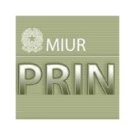The Economics of Old Age Risks - Giavazzi

PRIN Grant
Head of Bocconi Research Unit
Francesco Giavazzi
Team Members
Francesco Giavazzi
Vincenzo Galasso
Abstract
The project investigates four different types of risk and their impact on the economic behavior of individuals and households, including the implications for the design of welfare systems in aging societies.
1. Health risk. We analyze the impact of health risks on saving decisions and portfolio allocations and on the demand for insurance of older people, such as Long Term Care, taking into account the role of informal care. We look at the nexus between health status (including cognitive abilities) and economic decisions, in particular the dynamic relationship between health, medical treatments and economic outcomes.
2. Longevity risk. The project focuses on the optimal level of wealth annuitization, the interaction between pension arrangements and wealth annuitization, the effect of expected survival probabilities on economic outcomes, with regard to the demand for insurance and the intensity of bequest motives and intergenerational solidarity.
3. Labor market risk. European mature men and women have increased their labor market participation, but the unemployment risk has also increased for this age group. It is relevant to study labor market contracts that insure at least part of this risk, and the extent to which early retirement schemes limit the effect of labor market risk at the end of working life and mitigate rigidities in the labor market.
4. Financial risk. The issue of how adequate savings are for current and future retirees is of great importance for public policy, pension design, and financial markets regulation. Related issues are the analysis of financial instruments that allow housing equity withdrawals and improve portfolio diversification.
The network proposes an integrated and interdisciplinary approach to these topics. First, all the aforementioned risks interact in the decisions of elderly individuals. Second, in each risk dimension, it is key to study the consequences of wrong decisions, due to either lack of cognitive abilities and financial sophistication, or to biased financial advice.
The project proposes advances at both theoretical and empirical level. Although the different lines of research will make use of several microeconomic data sets, the most heavily exploited data source will be the Survey of Health Ageing and Retirement in Europe (SHARE), which is now available from 2004 to 2013. The panel structure of SHARE allows the estimation of dynamic decision models controlling for unobserved heterogeneity, while the multicountry nature of the data permits to relate individual behavior to the institutional characteristics of each country. As a byproduct of our research, we expect to contribute also to the econometric and statistical literature on missing data, nonresponse and attrition in surveys, and measurement error in microdata.

This project has been funded by Ministero dell'Istruzione, dell'Università e della Ricerca under the framework PRIN 2017 - Progetti di ricerca di Rilevante Interesse Nazionale.